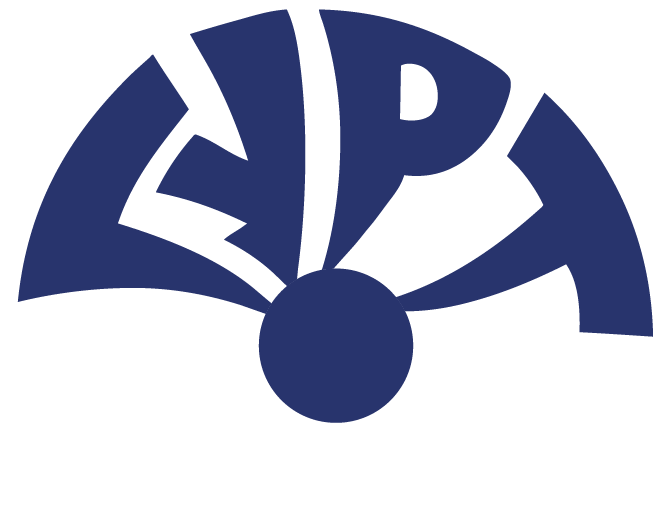


Продовольча та сільськогосподарська організація ООН оголошує конкурс для українських НУО
22.05.2020
The Food and Agriculture Organization of the United Nations invitation to submit a proposal for the provision of: Services of agricultural inputs distribution in the conflict-affected areas of Donetsk and Luhansk oblasts. CLOSING DATE: 4 June, 2020.
Project: Provision of emergency agricultural support in hard-to-reach rural villages along the ‘contact line’ of Donetsk and Luhansk oblasts
Issued on: 20 May, 2020
The Food and Agriculture Organization of the United Nations (“FAO” or “Organization”) is an intergovernmental organization with more than 196 member nations. Since its inception, FAO has worked to alleviate poverty and hunger by promoting agricultural development, improved nutrition and the pursuit of food security - defined as the access of all people at all times to the food they need for an active and healthy life.
Further and more detailed information on FAO can be found on the internet site: http://www.fao.org.
This invitation is for the provision of non‑commercial services under the FAO rules that govern Letters of Agreement (hereinafter refered to as “Agreement” or “LoA”). Under these rules only non-profit, intergovernmental, and governmental organisations are eligible to sign LoAs with FAO.
- Background Information
Project objective: Contribute to the improvement of the food security situation and the livelihoods of the vulnerable rural households residing in hard-to-reach rural areas of Donetsk and Luhansk regions of eastern Ukraine.
The project will benefit about 1 820 farming rural households as direct beneficiaries, consisting of various vulnerable groups. Intervention will target vulnerable food-insecure households residing in hard-to-reach rural villages of Donetsk and Luhansk in the close proximity to the ‘contact line’ that practice backyard agricultural production. Further emphasis will be done to address the needs of elderly, people with disabilities (to the extent possible by the modality of the assistance), women and female-headed households, single mothers and IDPs.
Project will geographically focus on the selected hard-to-reach rural villages of Donetsk and Luhansk oblasts situated within the 0-5 km zone from the ‘contact line’ of Government Controlled Area (GCA). Targeted raions of Donetsk oblast will include Bakhmutskiy, Yasinovatskiy, Mariinskiy Volnovahskiy. Intervention will target the following raions form Luhansk oblasts: Stanichno-Luhanskiy, Novoaidarskiy, Popasnaynskiy.
To reach the target, FAO will purchase 273 tonnes of animal fodder to be distributed to about 1 820 vulnerable households, livestock holders. A beneficiary entitlement of 150 kg, consisting of 75 kg of crushed corn and 75 kg of crushed wheat grains, in combination with the domestically available feed in the households, will be sufficient to feed the livestock during the winter period. The animal feed will be procured locally. Emphasis will be placed on universality of the animal feeds that could be used by the beneficiaries regardless of the type of animals they keep in the barnyard (cows, pigs, sheep, goats, poultry/rabbits, etc.).
Further, provision of critically required livestock fodder will serve as winterization action for the season of 2020-2021. This intervention is extremely important considering that winter period in Ukraine begins late September and lasts for more than four months and rural abandoned households remain to be a major concern while being more likely to deplete their food reserves during this time. This group will face significant shortage of the nutritious food products to be able to sustain themselves during winter. Therefore, it is critical to ensure sufficient reserves of animal feed during the winter period to sustain self-production.
- Services required:
Objective. The Services will contribute to the following Organizational Strategic Objective: 5 - Increase the resilience of livelihoods to threats and crises.
Outputs. The Service Provider will produce, achieve or deliver the following outputs:
Output 1: Set-up an efficient and transparent system to identify targeted beneficiaries;
Output 2: Prepare the list for agricultural inputs beneficiaries according to FAO instructions;
Output 3: Organize distribution of agricultural inputs to selected beneficiaries;
Output 4: Conduct post-distribution assessment.
Activities. Activities provided by the organization should be in line with the indicative timeframe of the farming inputs distribution. Inputs will be procured by FAO as per its rules and regulations. Because of existing uncertainties caused by the ongoing military conflict, difficulties of access and existing logistical challenges, exact timing of the farming inputs distribution will be defined on a case-by-case basis with FAO. Timing of the surveys, field interviews and focus group discussions will be defined based on the emerging needs and agreed upon by the Service Provider and FAO.
Indicative project timeframe:
|
No |
Type of Service |
Jul-20 |
Aug-20 |
Sep-20 |
Oct-20 |
Nov-20 |
Dec-20 |
|
1. |
Beneficiary selection process |
|
|
|
|
|
|
|
2. |
Verification of beneficiaries |
|
|
|
|
|
|
|
3. |
Distribution of inputs |
|
|
|
|
|
|
|
4. |
Post-distribution monitoring |
|
|
|
|
|
|
|
5. |
Preparation and submission to FAO the Final report |
|
|
|
|
|
|
The Service Provider will undertake the following activities:
Output 1: Set-up an efficient and transparent system to identify targeted beneficiaries:
- Make public announcements of the planned inputs distribution in the communities at the outset of the selection process in each of the selected communities. Inform on the availability of the hotline, managed by FAO.
- Based on latest vulnerability criteria communicated by FAO, identify 1820 farming rural households as direct beneficiaries (at least 30% of which are female-headed households) that will receive livestock fodder.
- In coordination with the targeted communities select beneficiaries according to agreed criteria;
- Share list of identified beneficiaries with FAO for validation and approval;
- Address all complaints received regarding beneficiaries selection through the communication complaint system established at the onset of the project.
Output 2: Organize distribution of agricultural inputs procured by FAO to selected beneficiaries:
- Accompany the trucks of the FAO supplier with assistance to the final delivery points;
- Unload the trucks and distribute the inputs delivered by the supplier to the selected beneficiaries;
- Collect signatures, passport/ID details, copy of documents proving vulnerability and contact details of each beneficiary.
- Make sure providing comprehensive public announcement about agricultural assistance being provided by FAO project based on the istructions given by FAO Communications Unit;
- Inform beneficiaries on the availability of the hotline, managed by FAO.
- Submit distribution lists signed by beneficiaries in scanned copy to FAO.
Output 3: Conduct post-distribution assessment:
- Conduct post-distribution assessment through contacting via phone 10% of livestock fodder beneficiaries one month prior to the project closure to assess the change in the production capacities of the households’ livestock using the tools provided by FAO.
|
Desired outputs |
Key performance indicators per output |
Timeline for the delivery of the outputs |
|
1. Set-up an efficient and transparent system to identify targeted beneficiaries |
The final beneficiary lists for 1820 farming rural households with 30% of thehouseholds being female-headed is corresponding the vulnerability criteria and are approved by FAO. |
At least two weeks before the estimated inputs distribution start date. |
|
2. Organize distribution of agricultural inputs and information materials to selected beneficiaries |
The goods delivered by the supplier to locations are timely distributed among the beneficiaries |
During the inputs distribution process. |
|
Beneficiaries acknowlege that distributed inputs is a part of FAO project and understand the intended use. |
During the inputs distribution process. |
|
|
Scanned copy of distribution lists signed by 1820 beneficiaries is submitted to FAO. |
Not later then one week following completion of inputs distribution process. |
|
|
3. Conduct post-distribution assessment |
The database with data collected through post-distribution survey contacting 10% of beneficiaries is approved by FAO. |
One month prior to the project closure. |
- III. Procedures and Conditions:
FAO hereby invites you to submit a Proposal in connection with the above described services. Your Proposal should be based on the requirements included herewith; it is subject to the following procedures and conditions which you deemed to have accepted by submitting a Proposal.
In submitting your Proposal you are supposed to have considered all aspects relevant to the performance of the proposed Agreement and to have obtained all necessary information and data as to risks, contingencies and other circumstances which may influence or affect your Proposal;
It is understood that all documents, calculations, etc. which may form part of your Proposal will become the property of FAO, who will not be required to return them to your organisation;
FAO may decide to make a partial award or no award at all should it consider that the results of this invitation for Proposal and/or any other related circumstance so require;
FAO shall have no obligation to purchase any minimum quantities of goods or services from your organisation, and shall have no limitation on its right to obtain goods or services of the same kind, quality and quantity as described in this Proposal from any other source at any time;
All costs incurred to prepare your Proposal have to be borne by you; FAO will not be liable to reimburse any or all of such cost;
FAO reserves the right to publish the details of awards, including the Service Provider’s name and country, total value of the Agreement and a brief description of the services.
FAO has a zero tolerance approach to fraud, and it prohibits any entities from engaging in corrupt, fraudulent, collusive, coercive, unethical and obstructive practices when participating in procurement activities. As provided by the Vendor Sanctions Procedures (http://www.fao.org/fileadmin/user_upload/procurement/docs/FAO_Vendors_Sanctions_Policy_-_Procedures.pdf), if the Organization determines that an entity has engaged in such conduct, it will impose sanctions and may share information on sanctioned entities with other Intergovernmental or UN Organizations;
An entity and its affiliates, agents and subcontractors should not be suspended, debarred, or otherwise identified as ineligible by any Intergovernmental or UN Organization, including any organization within the World Bank Group or any multi-lateral development bank, or by the institutions and bodies of economic integration organizations (e.g., the European Union). You are therefore required to disclose to the Organization whether your organisation, or any of your affiliates, agents or subcontractors, is subject to any sanction or temporary suspension imposed by any such organization or National Authority at any time during the three years prior to the Agreement or at any time throughout the execution of the Agreement. You acknowledge that a breach of this provision will entitle FAO to terminate its Agreement with your organisation, without any liability for termination charges or any other liability of any kind of FAO, and that material misrepresentations on your status constitute a fraudulent practice;
Bidders must certify that their organisation is not associated, directly or indirectly, with entities or individuals (i) that are associated with terrorism, as in the list maintained by the Security Council Committee established pursuant to its Resolutions 1267 (1999) and 1989 (2011), or (ii) that are the subject of sanctions or other enforcement measures promulgated by the United Nations Security Council. Selected bidders also agree to undertake all reasonable efforts to ensure that none of the funds received from FAO under the awarded Agreement are used to provide support to individuals or entities associated with terrorism or that are the subject of Security Council sanctions. This provision must be included in any subcontracts, sub-agreements or assignments entered into under the awarded Agreement. The Bidder acknowledges and agrees that this provision is an essential term of the awarded Agreement and any breach of these obligations and warranties shall entitle FAO to terminate the Agreement immediately upon notice to the Service Provider, without any liability for termination charges or any liability of any kind of FAO;
Bidders must certify that their organisation and/or subcontractors are not associated, directly or indirectly, with the consultant or any other entity who prepared the terms of reference or other bidding documents for this tender;
Please note that Bidders who use an independent consultant to assist in the preparation of Proposals may risk engaging in unacceptable practices if the same consultant assists another Bidder to prepare a Proposal for the same tender. Bidders are reminded that they are fully responsible for the conduct of any consultant who may be used to prepare Proposals for FAO tenders and they should take all measures to ensure that any independent consultant engaged to assist in the preparation of a Proposal for an FAO tender has not and will not be involved in the preparation of a Proposal for another Bidder for the same tender process.
Bidders are kindly requested to disclose to the best of their knowledge whether their organisation has any personal or professional relationships with FAO. The disclosure shall include all relevant details and should include, but not be limited to:
- ANY current or past employment relationship with FAO of your organisation’s representatives and employees;
- ANY current or past relationship with any FAO staff member (family members, spouses, etc.) of your organisation’s representatives and employees.
Closing Date
We would appreciate your acknowledging receipt of this invitation and indicating your intention as to whether or not you will submit a Proposal by email to FAO-UA@fao.org
Communications Concerning this Proposal
All communications concerning this Proposal should be submitted uniquely through the following channel of communication:
Email to a valid FAO address FAO-UA@fao.org or by mail/courrier to FAO Office in Ukraine (20 Esplanadna Str., Office 401, 01001 Kyiv, Ukraine) the issuing office address in two sealed envelopes.
If your Proposal is submitted by email it should be in pdf format.
The Proposal should consist of two parts: a Technical Part and Financial Part which should be prepared as follows:
Technical Part should include:
- The description and number of years of experience in the field of the required services and the area of intervention as applicable;
- The proposed methods and processes suitable and feasible to achieve the outputs mentioned above within the required timeline (to be described in Appendix A “Workplan”) and in conformity with the performance indicators;
- The description of the reports, documents and other outputs to be provided during and after implementation of the required services;
- The full name, address, fax and/or email address and telephone numbers of your organisation (association, institute, etc.) and contact persons;
- The banking details (name and location of bank, account number).
Please note that FAO will make the relevant LoA payments to the bank account indicated by the selected Service Provider. The bank account holder name must be the name of Service Provider.
Financial Part:
A detailed cost estimate (i.e. a budget in accordance with Appendix B) based on a workplan including all the costs for the delivery of the required services / implementation of the Agreement. The budget should be broken down by the inputs that are required to carry out the activities avoiding the use of activity-based lumpsums. Budget items and the corresponding objective units of measurement should be well defined, and should be calculated by multiplying the quantity (i.e. the number of units) by the unit cost (i.e. the estimatged cost per unit) .
All assumptions should be documented. The financial part should specify clearly the currency used (the local currency in which the majority of the expenses will be incurred, or the United States Dollar for multi-country operations).
Контакти
- FAO-UA@fao.org








Коментарі